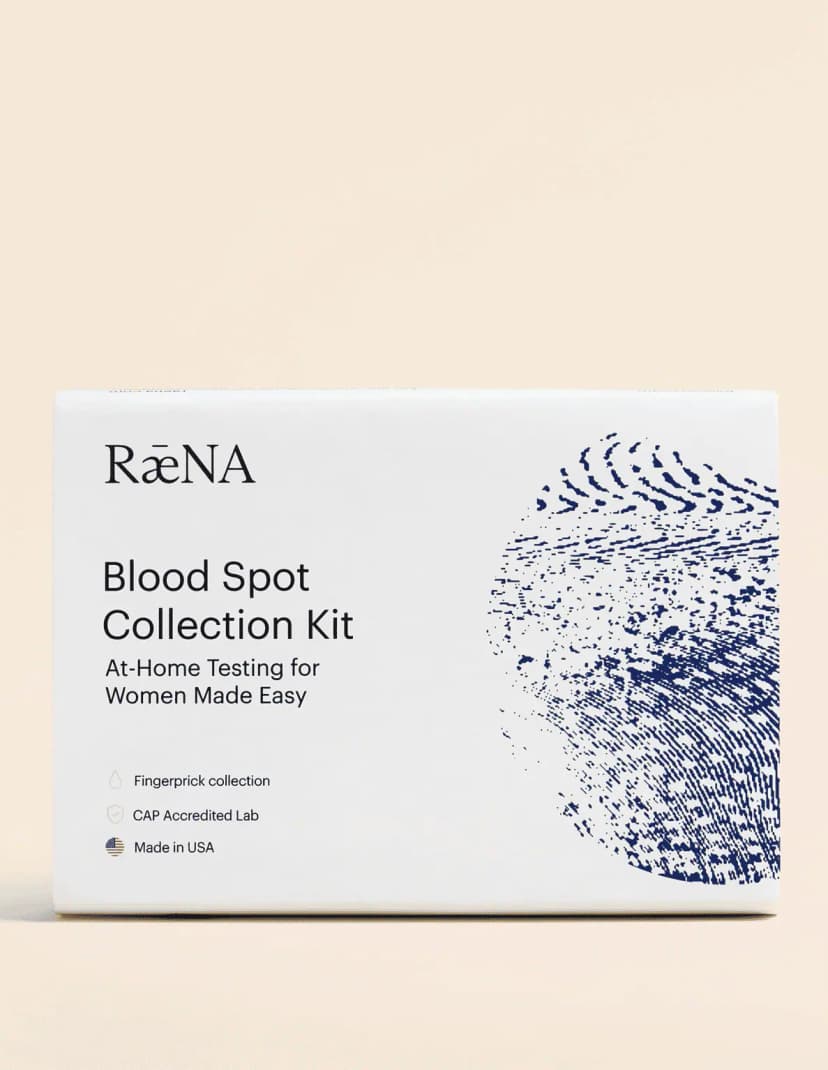Hormone Testing: Unlocking the Secrets of Your Body’s Symphony
I grew up watching my mom struggle with severe scoliosis. Her back curved in a way that reminded me of a hunchback, like something out of a storybook. One day, she shared with me that her condition was due to hormones. I was shocked. How could hormones cause such a dramatic change in her body?
She explained that while she was still in the womb, my grandmother was given a drug called DES, a synthetic form of estrogen. What many people don’t realize is that estrogen plays a significant role in growth, and sometimes, that power can have unintended consequences. It was hard to believe that a hormone could alter my mom’s body so drastically. This revelation sparked my fascination with these powerful messengers.
Hormones are the master conductors of our body's intricate symphony, orchestrating an array of physiological functions that keep us feeling balanced, vibrant, and alive. These chemical messengers tell our organs how to work and are ultimately responsible for everything from regulating our metabolism and energy levels to influencing our mood, sleep, and even our capacity to handle stress. But just like any finely tuned orchestra, the slightest disruption in harmony can result in a cascade of effects, leading to a range of health challenges. This is where hormone testing comes into play, providing a window into your body’s inner workings.
Why Hormone Testing Matters
Imagine your body as a finely tuned instrument, where each hormone plays a specific note in the melody of your well-being. As we age, or when life throws us a curveball—be it stress, illness, aging, or lifestyle changes—our hormone levels can fluctuate, sometimes dramatically. These imbalances often go unnoticed until they manifest as physical symptoms such as unexplained weight gain, persistent fatigue, mood swings, or more serious conditions like thyroid disorders or cancer.
Hormone testing is a powerful tool for gaining insights and preventing future health problems. But with so many options available, how do you know where to turn? We'll dive into which types of hormone tests to consider and what key factors to look for, helping you make informed decisions for your health.
The Key Hormones to Monitor
Understanding which hormones to test is the first step toward regaining control of your health. Here are some of the key players in your body’s hormonal symphony:
- Progesterone: The Soothing Melody
Often referred to as the "calming hormone," progesterone is vital for women’s reproductive health, helping to regulate the menstrual cycle, support pregnancy, and maintain uterine health. But progesterone’s influence extends beyond reproduction; it also plays a critical role in bone health, mental health, and even preventing cancer.
A prospective epidemiological study of 1,083 women treated for infertility, followed for 13 to 33 years, revealed some startling findings. Women with the lowest progesterone levels had a 5.4 times higher risk of breast cancer, 10 times as many deaths from all cancers, and worse breast cancer survival rates compared to those with higher progesterone levels.
This significant difference in outcomes is closely linked to one of progesterone’s primary functions: counteracting the effects of estrogen. Estrogen, while essential for many bodily functions, can become problematic when unopposed by sufficient levels of progesterone. Unopposed estrogen can lead to a state known as estrogen dominance, where the body is exposed to excessive estrogen relative to progesterone. This imbalance can stimulate the proliferation of breast tissue, which increases the risk of breast cancer. Progesterone plays a critical role in maintaining hormonal balance by regulating the growth effects of estrogen on breast tissue and other estrogen-sensitive tissues.
Some doctors may argue that progesterone levels fluctuate too much for reliable testing, but timing is crucial. Testing on days 19-21 of the menstrual cycle, when progesterone peaks, provides a meaningful assessment of whether your levels are optimal during the luteal phase.
- DHEA: The Youthful Rhythm
Dehydroepiandrosterone, or DHEA, is often called the "fountain of youth" hormone. Although not as talked about, DHEA is actually the most abundant steroid hormone in the human body. Imagine all the roles it plays!
The production of DHEA peaks during your 20s, and as you age, the levels gradually decline. By the time you reach your 70s or 80s, your body’s DHEA production may have decreased by as much as 80% compared to peak levels. Research suggests that higher DHEA levels are associated with improved mood, increased energy, enhanced memory, and a reduced risk of depression and anxiety.
Testing for DHEA is important because that way you can really see if it's low and if you should strategically supplement! If levels are low, it may help identify deficiencies that may be contributing to fatigue, reduced libido, and cognitive decline, making it possible to implement strategies that support healthy aging.
- Cortisol: The Stress Conductor
Cortisol, often dubbed the "stress hormone," plays a key role in managing how our bodies respond to both physical and emotional stress. Think of it as the conductor of your body's stress orchestra, guiding your reactions in stressful situations.
While short bursts of cortisol can be helpful, chronic stress can keep cortisol levels high, which isn't so great. Elevated cortisol over time can lead to issues like weight gain, high blood pressure, and a weakened immune system.
One of the more surprising side effects of chronically high cortisol is Non-Alcoholic Fatty Liver Disease. One study noted, “It has been obvious for some time that there is an association between the body’s own cortisol or therapeutically administered cortisone and the development of fatty liver.” Cortisol’s role in metabolic diseases is still being researched, but some evidence does indicate that fatty liver might not just be related to diet, but also your cortisol.
Testing your cortisol levels is simple, and if they're elevated, it's a sign that stress might be taking a toll. Knowing this is crucial because consistently high cortisol can lead to significant health problems.
- Thyroid Hormones: The Metabolic Tempo
The thyroid gland is like your body's thermostat, keeping your metabolism and energy levels in check through the production of thyroid hormones—T3 (triiodothyronine), T4 (thyroxine), and TSH (thyroid-stimulating hormone). These hormones are essential for everything from energy production and weight management to mood and brain function.
When thyroid hormones are out of balance, it can lead to issues like hypothyroidism (an underactive thyroid) or hyperthyroidism (an overactive thyroid), both of which can have a big impact on your health. One key marker to watch in thyroid blood work is TSH. Elevated TSH levels are often linked to an underactive thyroid and can even increase your risk of thyroid cancer.
Exploring the Methods of Hormone Testing
When it comes to assessing hormone levels, one size does not fit all. The method you choose can significantly impact the accuracy and usefulness of the results. Here’s a closer look at the various hormone testing methods available:
Serum Testing
- Advantages: Blood serum tests are highly accurate and widely accessible. They are particularly effective for assessing hormones like progesterone, DHEA, cortisol, and thyroid hormones. The results from blood tests are reliable and provide a clear picture of circulating hormone levels in the bloodstream.
- Limitations: Blood tests capture a snapshot of hormone levels at a single moment, which may not reflect daily fluctuations, particularly for hormones like cortisol that vary throughout the day.
Dried Blood Spot Testing
- Advantages: Blood spot testing is not only convenient, allowing for sample collection at home or in a doctor’s office, but also considered by some to be more accurate for hormone testing. Unlike serum, which is the liquid component after blood cells are removed, dried blood spots contain whole blood, including blood cells. This is important because hormones bound to blood cells are lost during serum preparation, potentially leading to less accurate results. Blood spot testing better reflects hormone levels in capillary blood, which directly nourishes body tissues.
- Limitations: Dried blood spot testing does have its limitations. It may not capture all the markers that a serum test can, particularly if you're looking to assess markers beyond hormones, such as cholesterol and pregnenolone. Additionally, if you find at-home lancets uncomfortable or difficult to use, you might prefer the more conventional option of visiting a lab for a blood draw.
Saliva Testing
- Advantages: Saliva testing is non-invasive and convenient, allowing for multiple samples to be collected throughout the day. This makes it ideal for assessing diurnal patterns of cortisol and other hormones. Because it measures the free, unbound hormones, saliva testing offers a direct insight into hormone activity at the cellular level, making it a reliable indicator of hormonal health.
- Limitations: While saliva testing can be accurate for assessing certain hormones, it has its drawbacks. Factors such as hydration levels and bacteria in the mouth can potentially influence the results, leading to variability. Additionally, as we age, the production of hormones naturally declines, making it challenging to capture accurate hormone levels through saliva testing when hormone production is very low. This limitation becomes particularly relevant in later life when hormonal levels are already diminished. Furthermore, saliva testing can’t measure everything! For example, it cannot measure thyroid hormones.
Urine Testing
- Advantages: Dried urine testing is known for its accuracy across a wide range of analyte concentrations. It can provide a detailed picture of hormone metabolism and adrenal function, especially useful for assessing cortisol patterns and understanding hormone detoxification pathways.
- Limitations: While informative, urine tests primarily reflect the liver's metabolism of hormones rather than their active levels within the body’s cells. Additionally, because urine is an excretory product, it may not always correlate perfectly with hormone levels in the bloodstream or tissues.
Conclusion
Thinking back to my mom’s experience with DES and how it affected her body, I can't help but realize how powerful hormones are in shaping our lives. Her story opened my eyes to just how much these tiny messengers can influence our health, often in ways we don’t fully understand until much later.
Hormone testing isn’t just about finding out what’s wrong—it’s about getting to know your body better, and understanding how your hormones are affecting you day to day. Just like my mom’s story made me curious about the role of hormones, taking the time to test and understand your own levels can give you the insights you need to stay healthy and balanced. It’s a way to take control of your health, listen to what your body is telling you, and make sure everything is working in harmony. After all, when your hormones are in sync, you’re more likely to feel your best and live life to the fullest.












